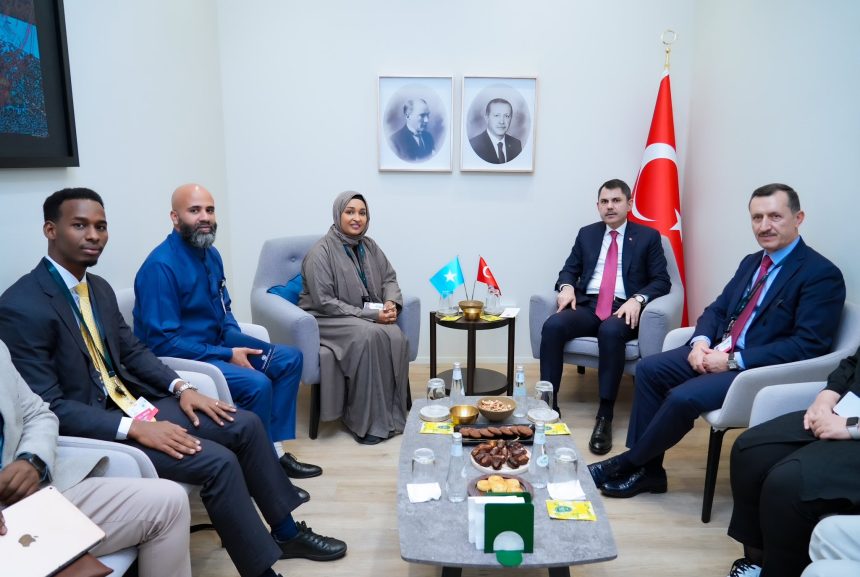Riyadh, SONNA – In a significant diplomatic development during the COP16 conference, Somalia’s Minister of Environment and Climate Change, Khadija Makhzumi, engaged in a high-level meeting with Turkey’s Minister of Environment, Urbanization, and Climate Change, Murat Kurum.
The discussions, held on the sidelines of the United Nations Convention to Combat Desertification (UNCCD) COP16 in Riyadh, centered on enhancing bilateral cooperation in environmental sustainability and climate action.
Minister Makhzumi expressed Somalia’s strong support for Turkey’s bid to host the 31st session of the Conference of Parties (COP31), emphasizing the strategic partnership between the two nations in addressing pressing global climate challenges. This endorsement aligns with international efforts to tackle climate change, particularly in vulnerable regions facing severe impacts such as desertification and drought.
Key Areas of Collaboration
The dialogue highlighted several priority areas for partnership:
1.Policy Development: Both ministers discussed the exchange of best practices in environmental policymaking to build resilient and sustainable development frameworks.
2.Capacity Building: Technical assistance and capacity-building initiatives were emphasized to strengthen climate risk management in both countries.
3.Funding and Investment: The leaders explored strategies to secure international funding for climate mitigation and adaptation projects, critical for addressing acute environmental challenges in Somalia.
4.Climate Advocacy: Both ministers underscored the importance of coordinated efforts to amplify climate advocacy on the global stage, integrating environmental concerns into broader geopolitical agendas.
Strengthening Climate Diplomacy
The meeting underscores a growing environmental partnership between Somalia and Turkey and reflects a shared commitment to advancing the global climate agenda. Somalia’s endorsement of Turkey’s COP31 bid also highlights strategic alignment in international climate politics, offering a model for how smaller nations can contribute to global governance on environmental issues.
As COP16 progresses, the outcomes of this bilateral engagement are expected to contribute meaningfully to global efforts in combating climate change and desertification. Further details on potential agreements or initiatives are anticipated as the conference continues.
This collaboration exemplifies the pivotal role of international partnerships in addressing shared environmental challenges, marking a step forward in the collective global response to climate change.





